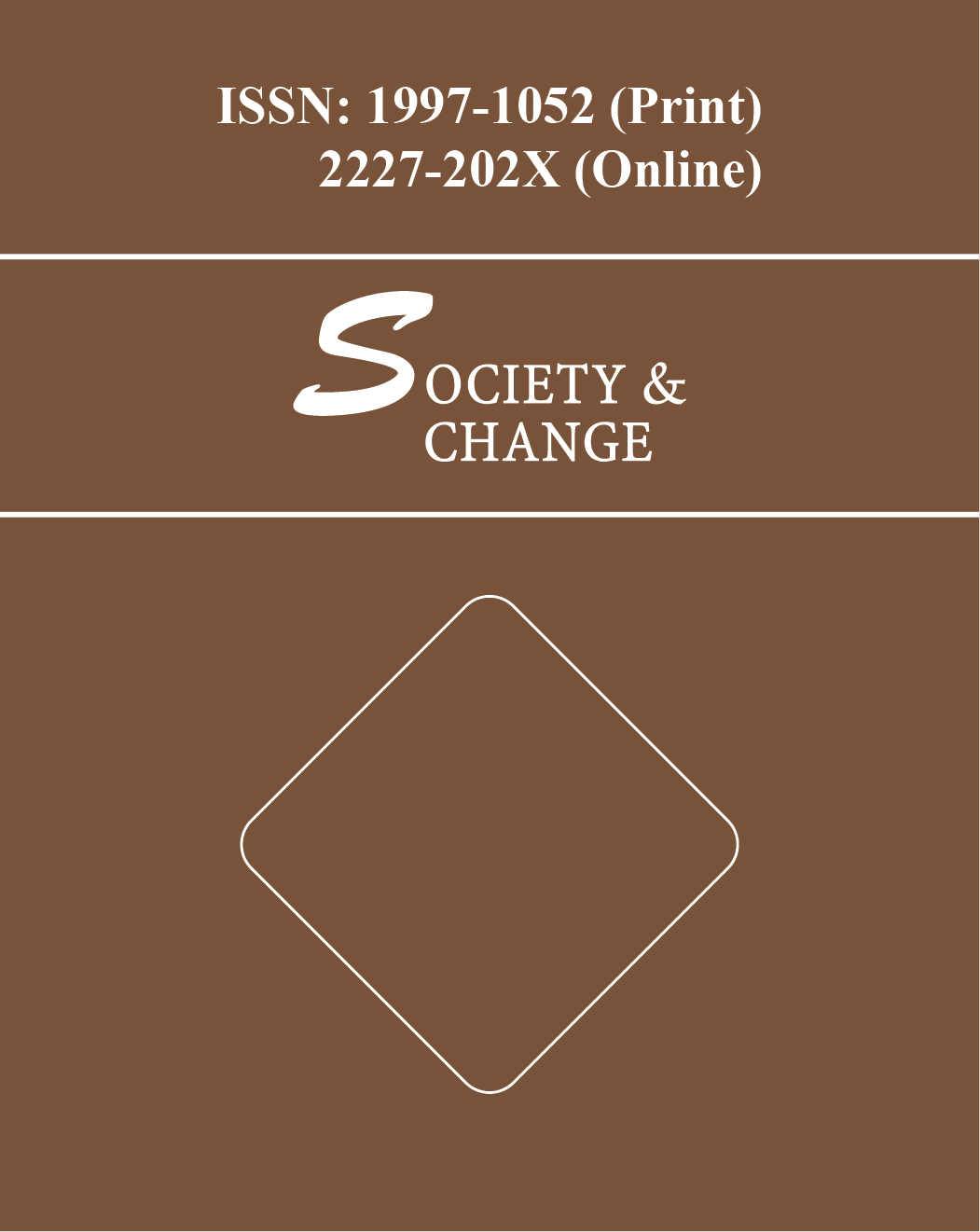The coronavirus COVID-19 pandemic is defining a global health crisis of our time. It’s not only a health crisis, also an unprecedented socio-economic crisis. It was identified in the Wuhan province in China 31 December 2019 as of 25 March 2021 there have been 124,535,520 confirmed corona cases (WHO). It will most likely increase poverty and inequalities at a global scale, making achievement of SDGs even more urgent. Assessing the effects of the COVID-19 crisis on poverty among vulnerable groups and the Women contribution in Rural Development and Governance Practices to mitigate the Pandemic crisis of rural Bangladesh is essential for the study. Gender equality and women empowerment is one of the 17 Sustainable Development Goals, but also integral to all dimensions of inclusive and sustainable development. Since 1995 Beijing Platform for action of Fourth World Conference on Women, this empowerment concept gets importance by five phase’s viz. welfare, access, conscientisation, participation and control which includes four components as of material resources and services, socio-political rights, Intellectual and Idealistic issues. The Comprehensive Village Development Programme (CVDP)and Women’s Education, Income and Nutrition Improvement Project (WEINIP) activities of Bangladesh Academy for Rural Development (BARD) follows the consists of sustainable village organization, build capacity with continuing education through horizontal learning and training system provided to the village cooperative societies (VCS) under CVDP and Village based women’s societies (VWS) under WEINIP members for the development of the quality of life in the rural society by a package programmes. In this context, it was one of the special studies intended to find out the Women contribution in Rural Development and Governance Practices to mitigate the COVID-19 Pandemic crisis of rural Bangladesh. Especially on gender equality, women and child rights protection and women’s leadership by giving executive and managerial posts, project efforts for elected body, their strategic leadership with quality management promotion and women workers responsibilities, managerial capacity development through participatory annual planning (APC) and evaluation, flexible condition of loan disbursement, AGM, 9% interest rate, Profit and dividends distribution, socio-economic condition, health and nutrition and empowerment status achieved by women’s societies through various interventions and different component based group activities of the project/ programme interventions in the rural areas. The study has been conducted in the four villages’ i.etwo from CVDP and two from WEINIP under BARD project area at Cumilla district. Quantitative and qualitative methodological techniques and survey method have been used to collect the primary data. The respondents (n=04X30=120) have been selected for KIIs (key informant interviews) from CVDP and WEINIP villages of BARD. Furthermore, eight Focus Group Discussions (FGDs) and four case studies along with best practices have been made. Findings revealed that CVDP and WEINIP societies in the proportion covering 82-91 percent women who were members of executive committee works through participatory planning, group meeting followed by giving executive and managerial posts, quality of life as well as women empowerment situation has increased in the rural society through continuing education and training for them. On the basis of findings, it is recommended that more women should be including in the CVDPs executive committees ensuring provision by specific rules and laws. Moreover, in response to COVID-19 challenges more training and motivation is needed for improving gender rights practice and violence protection efforts, health-nutrition materials. Different field staff allowances and support services related to skill training for women’s income generation activities and their empowerment should be increased for sustainable development in Bangladesh.



 Additional Indexing
Additional Indexing